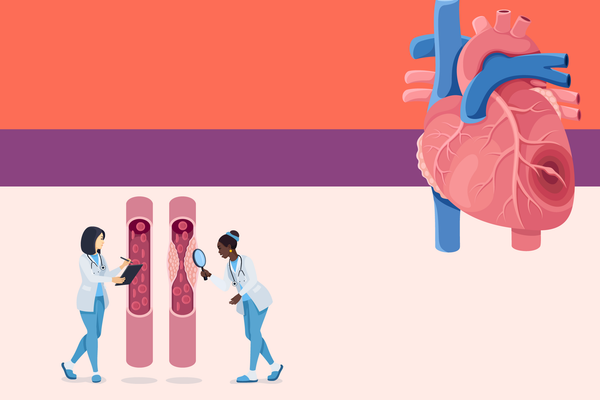Q:
I am confused about all the different words used to describe heart disease. What is the difference between conditions like atherosclerosis and cardiovascular disease? What is coronary artery disease? Bottom line, just what is heart disease, anyway?
A:
It really is confusing, isn't it? Let's see if I can help.
Heart disease is any kind of disease that affects the heart. That could be heart failure, angina, arrhythmia, valvular heart disease and coronary artery disease (CAD) or other conditions. Heart disease is the same thing as cardiac disease, but it is not the same thing as cardiovascular disease (CVD). Cardio refers to the heart and vascular refers to all the blood vessels in the body.
Cardiovascular disease refers to disease of the heart or blood vessels. For instance, it could include peripheral artery disease, in which the blood vessels in the legs become clogged and narrowed with plaque, resulting in pain upon walking. Plaque is composed of cholesterol, calcium, fat, dead cells and other gunk that can stick to the arteries, reducing blood flow and oxygen to the heart or, in the case of PAD, to the legs. Cardiovascular disease also includes stroke and high blood pressure.
Coronary artery disease, coronary heart disease and coronary atherosclerosis are the same thing. They occur when plaque builds up on the inside of coronary arteries.
Coronary atherosclerosis is a serious condition that can lead to heart attacks (also called acute myocardial infarction) or stroke. It can also result in angina, or chest pain upon exertion. Think of angina as a warning sign that you most likely have some form of heart disease.
Heart failure occurs when the heart doesn't pump blood as efficiently and effectively as it should. Untreated, high blood pressure often causes heart failure, as can other conditions, including coronary artery disease, valvular heart disease and infections.
Regardless of the type of heart disease, the risk factors are quite similar, including high blood pressure, high cholesterol, overweight or obesity, smoking, lack of physical activity, diet high in saturated fat and family history. Diabetes is a huge risk factor.
Look elsewhere on this site for information about reducing your risk of heart disease.
- Why Don’t Women Get the Same Treatment for Heart Disease as Men? ›
- Heart Disease ›
- Symptoms of Heart Attacks in Women ›
- FAQs: What Women Need to Know About Cardiovascular Disease ›
- Cardiac Arrest vs. Heart Attack ›
- Heart Disease Is the Number One Cause of Death for Women - HealthyWomen ›
- My Cardiovascular Disease Taught Me How to Live - HealthyWomen ›
- Clinically Speaking: Questions to Ask Your HCP About Cardiovascular Disease - HealthyWomen ›
- Facts About Heart Valve Disease - HealthyWomen ›




